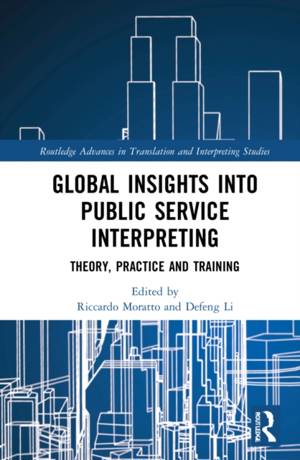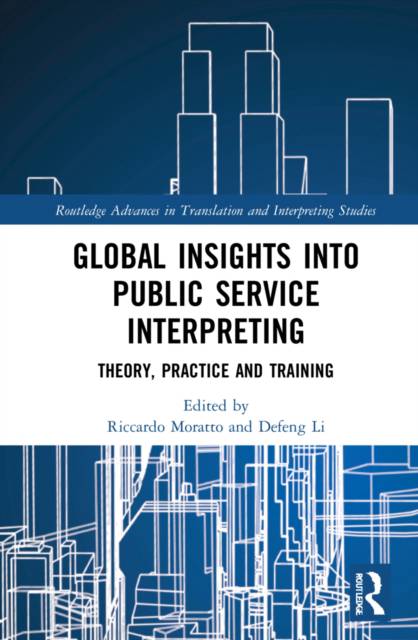
- Retrait gratuit dans votre magasin Club
- 7.000.000 titres dans notre catalogue
- Payer en toute sécurité
- Toujours un magasin près de chez vous
- Retrait gratuit dans votre magasin Club
- 7.000.0000 titres dans notre catalogue
- Payer en toute sécurité
- Toujours un magasin près de chez vous
Global Insights Into Public Service Interpreting
Theory, Practice and Training
Description
This edited volume sets out to explore interdisciplinarity issues and strategies in Public Service Interpreting (PSI), focusing on theoretical issues, global practices, and education and training. Unlike other types of interpreting, PSI touches on the most private spheres of human life, making it all the more imperative for the service to move towards professionalization and for ad hoc training methods to be developed within higher institutions of education. PSI is a fast-developing area which will assume an increasingly important role in the spectrum of the language professions in the future.
An international, dynamic and interdisciplinary exploration of matters related to PSI in various cultural contexts and different language combinations will provide valuable insights for anyone who wishes to have a better understanding when working as communities of practice. For this purpose, the Editors have collected contributions focusing on training, ethical issues, professional deontology, the role and responsibilities of interpreters, management and policy, as well as problems and strategies in different countries and regions.
This collection will be a valuable reference for any student or academic working in interpreting, particularly those focusing on Public Service Interpreting anywhere in the world.
Spécifications
Parties prenantes
- Editeur:
Contenu
- Nombre de pages :
- 260
- Langue:
- Anglais
- Collection :
Caractéristiques
- EAN:
- 9781032053189
- Date de parution :
- 19-11-21
- Format:
- Livre relié
- Format numérique:
- Genaaid
- Dimensions :
- 156 mm x 234 mm
- Poids :
- 566 g

Les avis
Nous publions uniquement les avis qui respectent les conditions requises. Consultez nos conditions pour les avis.





